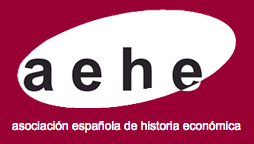About the guild monopoly: Toledo, 1700-1837
DOI:
https://doi.org/10.33231/j.ihe.2021.03.001Keywords:
Guilds, Work, 18th century, Toledo, N33, N6, N90, N93Abstract
Based on a sample of 3044 guild master diplomas issued by the Toledo guilds between 1700 and 1837, this article aims to verify whether the so-called «corporate monopoly» was fulfilled in aspects such as entry to the guild or the origin of its members. The study is based on a medium-sized city, which has aroused much interest due to its centuries of splendor –xvi– and decline –xvii–; but little for the eighteenth century, in general, and its manufacturing activities, in particular. In the context of the European debate on craft guilds, it is important to emphasize the contribution of these medium-sized cities, as they allow us to weigh the large number of problems inherent in country-town relations, which include the role of immigration of future artisans from rural to urban areas or that of the leading cities in the issuance of certificates of skill to be able to operate in the towns.
Downloads
Downloads
Published
How to Cite
Issue
Section
License
Copyright (c) 2022 José Antolín Nieto Sánchez

This work is licensed under a Creative Commons Attribution-NonCommercial-NoDerivatives 4.0 International License.
Aquellos autores/as que tengan publicaciones con esta revista, aceptan los términos siguientes
- Los autores/as conservarán sus derechos de autor y garantizarán a la revista el derecho de primera publicación de su obra, el cuál estará simultáneamente sujeto a la Licencia de reconocimiento de Creative Commons Reconocimiento-No comercial-Sin obra derivada 4.0 Internacional que permite a terceros compartir la obra siempre que se indique su autor y su primera publicación esta revista, y no permite hacer uso comercial de la misma ni tampoco obras derivadas.
- Los autores/as podrán adoptar otros acuerdos de licencia no exclusiva de distribución de la versión de la obra publicada (p. ej.: depositarla en un archivo telemático institucional o publicarla en un volumen monográfico) siempre que se indique la publicación inicial en esta revista.
Plagio y fraude científico
La publicación de un trabajo que atente contra los derechos de propiedad intelectual será responsabilidad de los autores/as, que serán los que asuman los conflictos que pudieran tener lugar por razones de derechos de autor. Los conflictos más importantes pueden darse por la comisión de plagios y fraudes científicos.
Se entiende por plagio:
- Presentar el trabajo ajeno como propio.
- Adoptar palabras o ideas de otros autores sin el debido reconocimiento.
- No emplear las comillas u otro formato distintivo en una cita literal.
- Dar información incorrecta sobre la verdadera fuente de una cita.
- El parafraseo de una fuente sin mencionar la fuente.
- El parafraseo abusivo, incluso si se menciona la fuente.
Las prácticas constitutivas de fraude científico son las siguientes:
- Fabricación, falsificación u omisión de datos y plagio.
- Publicación duplicada.
- Conflictos de autoría.





